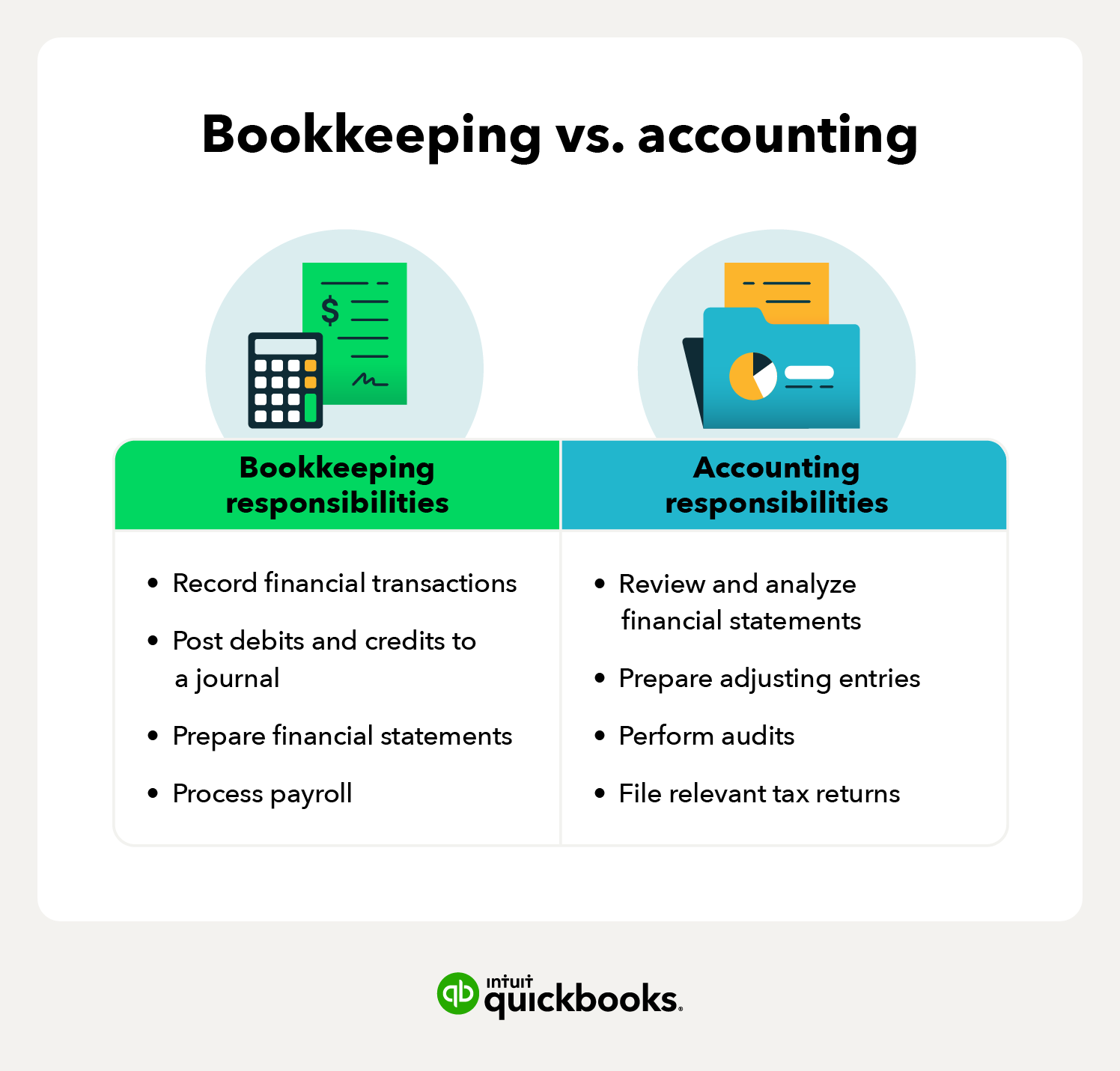

This is why it is so important that the work of the bookkeeper is accurate and up-to-date.Īccounting has existed to varying degrees throughout human civilisation.įor example, the double-entry accounting system that is still used today was developed in medieval Europe. The recording of financial transactions from bookkeepers forms the foundation upon which the work of an accountant is based. Calculate tax liabilities and provide the necessary documentation.Measuring and analysing information for internal use.

More broadly, what an accountant does may include: In financial accounting, the emphasis is placed on reporting an organisation’s financial information in the form of statements. You get financial accountants, tax accountants, management accountants and cost accountants. There are various fields that fall under the main category of accounting. This information can then be conveyed to tax authorities, investors, creditors, management and other key stakeholders.Īnother common synonym for accounting is ‘financial reporting’. This information can be financial or non-financial, and it measures the economic activities of a business. It involves the measuring, processing and communicating of information about economic entities like businesses and corporations. There are even apps for mobile devices to facilitate bookkeeping on the go. Today, many systems utilise cloud storage as a safe, reliable way to store and process data.
#Difference between book keeping and accountancy software#
Where once it would have involved multiple ledgers, it moved on to multiple spreadsheets, and storage has always been a key concern.Įven with computer-based systems, the software could be slow and the hard drive space is limited. The core purpose of bookkeeping is the tracking of all financial activities, keeping a constantly up-to-date record of income and outgoings, amounts the business owes and amounts owed to the business by customers, among other things.Īdvances in technology have changed the way bookkeeping is carried out, as it is a centuries-old profession. This is crucial for businesses of any size, and it gets more complex as things like taxes, loans, assets and investments come into the equation. ‘Bookkeeping’ and ‘accounting’ are often used interchangeably.īut bookkeeping is a more specific process than accounting. The person (or persons) responsible for bookkeeping records transactions such as: This helps ensure records are timely and accurate at all times.īusinesses need bookkeeping to keep their finances organised and ensure there are no errors in their accounting.īut bookkeepers can be useful for individuals and non-profit organisations as well. Bookkeeping has predetermined structures in a place known as ‘quality controls’. It is a distinct process in its own right, but it falls under the broader scope of accounting.Īny transaction that pertains to either a purchase or a sale has to be recorded. The information a bookkeeper records is the basis for the preparation of the business accounts. There is no room for error in bookkeeping.

These transactions must be recorded daily to ensure the records of every transaction are accurate, up-to-date and comprehensive. In this guide, we will look more closely at the differences between a bookkeeper and an accountant.īookkeeping is the process of systematically recording and organising a company’s financial transactions. However, the type of work undertaken is different. There are similarities between the two roles and many of the same skills and attributes are required. This work is then used to analyse the data collected by bookkeepers, enabling the accountant to conduct audits and make projections about future business needs. The input of a bookkeeper is often used by an accountant to create financial reports and statements. In a nutshell, bookkeepers keep a record of a business’s day-to-day financial transactions while accountants emphasise the big picture of those finances.īookkeepers have to pay close attention to the minute details as accuracy is all-important. The differences between bookkeeping and accounting are often quite subtle, but they are very distinct for anyone looking to enter either career.


 0 kommentar(er)
0 kommentar(er)
